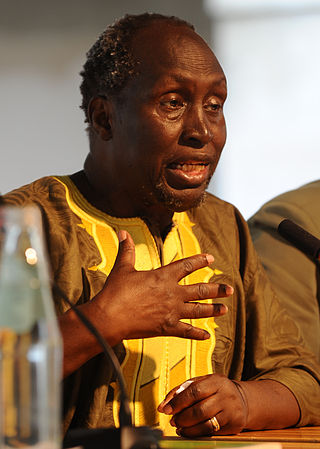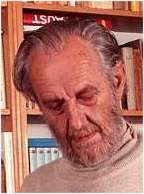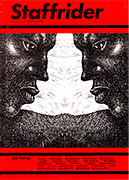Related Research Articles

Ngũgĩ wa Thiong'o is a Kenyan author and academic who writes primarily in Gikuyu and who formerly wrote in English. He has been described as having been "considered East Africa's leading novelist". His work includes novels, plays, short stories, and essays, ranging from literary and social criticism to children's literature. He is the founder and editor of the Gikuyu-language journal Mũtĩiri. His short story The Upright Revolution: Or Why Humans Walk Upright, is translated into 100 languages from around the world.

Chenjerai Hove, was a Zimbabwean poet, novelist and essayist who wrote in both English and Shona. "Modernist in their formal construction, but making extensive use of oral conventions, Hove's novels offer an intense examination of the psychic and social costs - to the rural population, especially, of the war of liberation in Zimbabwe." He died on 12 July 2015 while living in exile in Norway, with his death attributed to liver failure.
Kikuyu or Gikuyu is a Bantu language spoken by the Gĩkũyũ (Agĩkũyũ) of Kenya. Kikuyu is mainly spoken in the area between Nyeri and Nairobi. The Kikuyu people usually identify their lands by the surrounding mountain ranges in Central Kenya which they call Kĩrĩnyaga.
Meshack Asare is a popular African children's author. He was born in Ghana and currently resides in Degenfeld, Germany. On 15 July 2014, he was announced as a finalist for the prestigious international award, the 2015 NSK Neustadt Prize for Children's Literature, which he won on 24 October 2014, becoming the first African to receive the award. The Brassman's Secret was his representative text read by the nominating jury, and the award honors his entire body of work.
Njabulo Simakahle Ndebele is an academic and writer of fiction who is the former vice-chancellor and principal of the University of Cape Town (UCT). On 16 November 2012 he was inaugurated as the chancellor of the University of Johannesburg.
Ian Hideo Levy is an American-born Japanese language author. Levy was born in California and educated in Taiwan, the US, and Japan. He is one of the first Americans to write modern literature in Japanese, and his work has won the Noma Literary New Face Prize and the Yomiuri Prize, among other literary prizes.

Mũkoma wa Ngũgĩ is a Kenyan American poet, author, and academic. He is associate professor of literatures in English at Cornell University and co-founder of the Safal-Cornell Kiswahili Prize for African Writing. His father is the author Ngũgĩ wa Thiong'o. His family was deeply impacted by the bloody British suppression of the Mau Mau revolution.
African literature is literature from Africa, either oral ("orature") or written in African and Afro-Asiatic languages. Examples of pre-colonial African literature can be traced back to at least the fourth century AD. The best-known is the Kebra Negast, or "Book of Kings."

Sefi Atta is a Nigerian-American novelist, short-story writer, playwright and screenwriter. Her books have been translated into many languages, radio plays have been broadcast by the BBC, and her stage plays have been performed internationally. Awards she has received include the 2006 Wole Soyinka Prize for Literature in Africa and the 2009 Noma Award for Publishing in Africa.

Saiichi Maruya was a Japanese author and literary critic.

Peter Rudolf Gisela Horn was a Czech-born South African poet. He made his mark especially with his anti-Apartheid poetry. At the end of World War II he had to flee from his home and settled with his parents first in Bavaria and later in Freiburg im Breisgau, where he completed high school in 1954. He then emigrated with his parents to South Africa.
The Noma Prizes were established by Shoichi Noma, or in his honor. More than one award is conventionally identified as the Noma Prize. Noma was the former head of Kodansha, the Japanese publishing and bookselling company. Kodansha is Japan's largest publisher of literature and manga.
Kachifo Limited is an independent publishing house based in Lagos, Nigeria. It was founded in 2004 by Muhtar Bakare. Its imprints include Farafina Books, Farafina Educational, and Prestige Books. From 2004 to 2009, it published the influential Farafina Magazine.

Frank Mkalawile Chipasula is a Malawian writer, editor and university professor, "easily one of the best of the known writers in the discourse of Malawian letters".

Staffrider was a South African literary magazine that was published between 1978 and 1996.
The Noma Literary Prize was established in 1941 by the Noma Service Association in accordance with the last wishes of Seiji Noma (1878–1938), founder and first president of the Kodansha publishing company. It is awarded by the Noma Cultural Foundation, the largest single shareholder in Kodansha. The Noma Literary Prize has been awarded annually to an outstanding new work published in Japan between October and the following September. The Noma Prize includes a commemorative plaque and a cash award of 3 million yen. It is one in a series of Noma Prizes.
Wole Soyinka Prize for Literature in Africa is a pan-African writing prize awarded biennially to the best literary work produced by an African. It was established by the Lumina Foundation in 2005 in honour of Africa's first Nobel Laureate in Literature, Wole Soyinka, who presents the prize, which is chosen by an international jury of literary figures. Administered by the Lumina Foundation, the prize has been described as "the African equivalent of the Nobel Prize".
Ravan Press, established in 1972 by Peter Ralph Randall, Danie van Zyl, and Beyers Naudé, was a South African anti-apartheid publishing house.
Kikuko Tsumura is a Japanese writer from Osaka. She has won numerous Japanese literary awards, including the Akutagawa Prize, the Noma Literary New Face Prize, the Dazai Osamu Prize, the Kawabata Yasunari Prize, and the Oda Sakunosuke Prize.
References
- ↑ Meena Khorana, ed. (1998). "Award-winning Children's Books: The Noma Selections, 1980–1994". Critical Perspectives on Postcolonial African Children's and Young Adult Literature. Greenwood Publishing Group. pp. 27–44. ISBN 978-0-313-29864-6 . Retrieved 7 October 2012.
- ↑ Oyekan Owomoyela, ed. (2008). The Columbia Guide to West African Literature in English Since 1945. Columbia University Press. p. 132. ISBN 978-0-231-12686-1 . Retrieved 7 October 2012.
- ↑ Philip Altbach, ed. (1996). International Book Publishing: An Encyclopedia. Taylor & Francis. p. 370. ISBN 978-1-884964-16-9 . Retrieved 7 October 2012.
- ↑ "The Noma Award for Publishing in Africa". Noma Award. 2009. Archived from the original on 30 December 2012. Retrieved 18 May 2013.
- ↑ "A Profile of Ravan Press: 1984 Noma Award Winner", The African Book Publishing Record, Vol. 14, Issue 4, January 1988, p. 231. Retrieved 7 September 2019.
- ↑ Mots Pluriels: acceptance speech
- ↑ Ben (1 November 2009). "Nigerian Sefi Atta Wins the 2009 Noma Award". Books Live. Retrieved 13 February 2014.